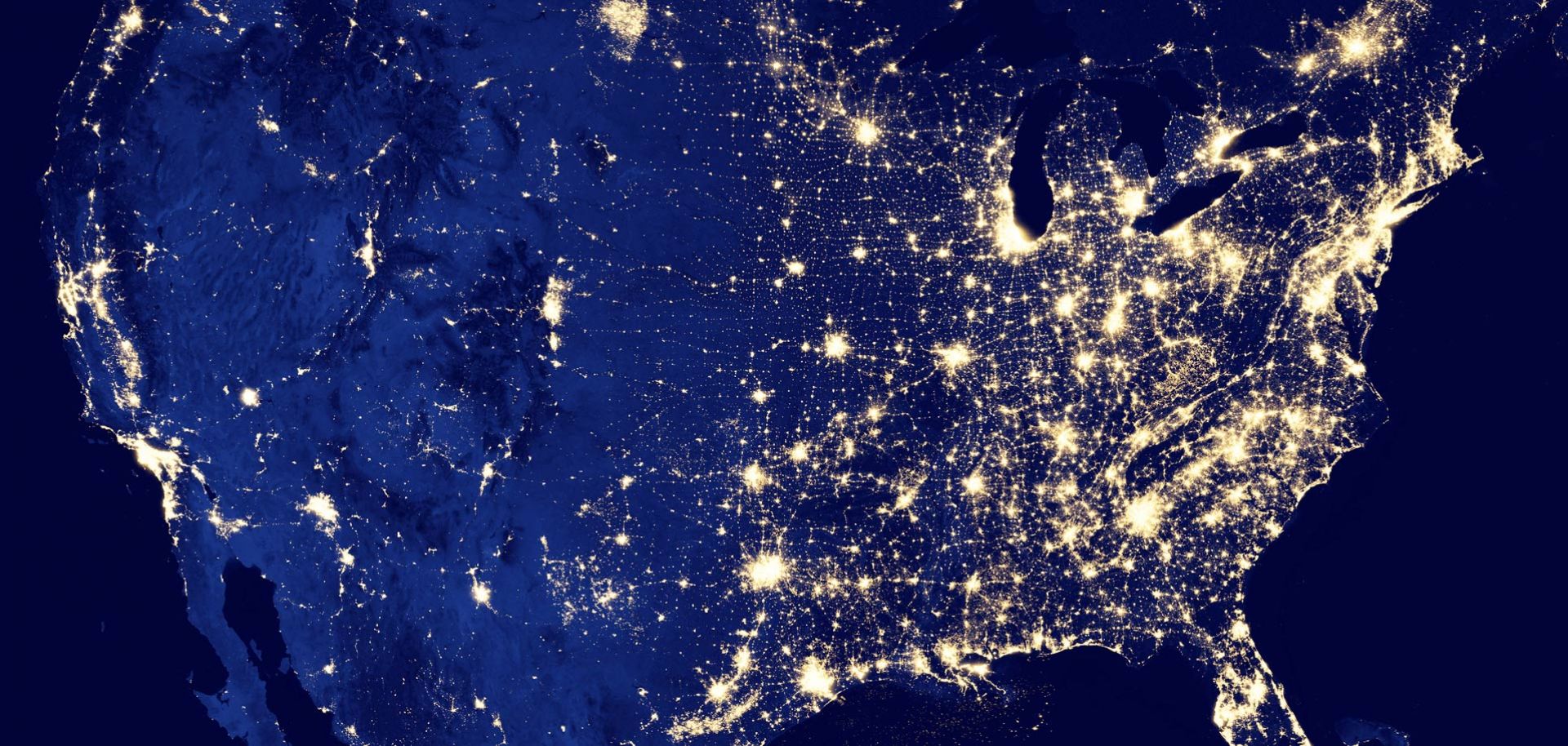GLOBAL PERSPECTIVES
How Americans Define Their Place in the World

Mar 23, 2016 | 08:01 GMT

The United States at night, an image made possible by a new satellite that detects light in a range of wavelengths from green to near-infrared and uses filtering techniques to observe dim signals.
(AP Photos/NASA)
Subscribe Now
SubscribeAlready have an account?
